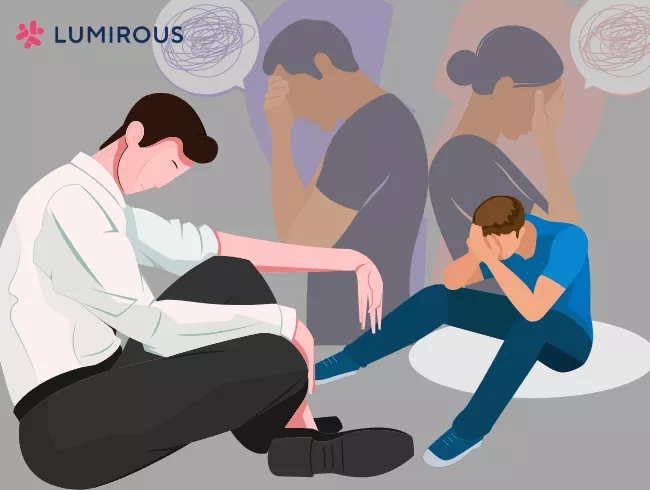Table of Contents

What is Azoospermia? |
Azoospermia is a condition when men did not have sperm in their semen. It is also known as the zero sperm count condition. Azoospermia is hard to detect based on visible symptoms alone hence this article will address how azoospermia is diagnosed and how azoospermia can be treated. |
How is Azoospermia Diagnosed? |
|
Azoospermia is mainly detected through semen analysis tests. The test will be conducted twice within the span of a few months. When both tests observed no living sperm in your semen, there is a significant chance that you may have azoospermia.
If you find yourself diagnosed with azoospermia, the next step is to try investigating the cause of this condition. The next part of the diagnosis includes investigating your medical history, physical examinations and conducting specific tests for a more in-depth analysis. |
Medical History Interview |
Do expect your doctor to ask questions about
|
|
During the physical examinations, your entire body will be checked for any signs of maturation delay/defects. This will include the physical examination of your reproductive organs, namely the testes, penis and scrotum. |
Physical Examinations |
Other specific tests |
Other specific tests are mostly needed when neither your medical history nor physical examinations could tell much about the cause of azoospermia. The specific testing may include:
|
Most of the time, your treatment plan will be based on the suspected cause(s) of the condition. Aside from that, a full fertility diagnosis from your partner is also essential before both of you can make further decisions. Do call to mind that your doctor can still devise a treatment plan even if the cause appears to be unknown.
Management and Treatment of Azoospermia |
|||
|
Treatment for azoospermia will depend on the specific kind of azoospermia and the cause of the problem. Your female partner's fertility condition will also be the deciding factor in choosing the right treatment. In cases of obstructive azoospermia, whereby the problems are blockages in the reproductive tracts or missing vas deferens, surgical procedures will be helpful to either reconnect or reconstruct the problematic parts. Aside from that, surgical procedures will also be helpful in removing problematic parts such as varicocele or in treating retrograde ejaculation. The non-obstructive azoospermia cases are a bit difficult to handle, as the condition may or may not respond to medication. If the main cause is hormone-related, hormone medications will be prescribed to help your hormone regulate itself. The right hormone level is supposed to encourage healthy sperm production. The next step regardless of which type of azoospermia you may have is to go for a sperm extraction procedure. From here on, you and your partner can attempt conception via assisted reproductive technologies (ART) such as in-vitro fertilization (IVF). |
Can You Prevent Azoospermia? |
|||
|
Azoospermia can be prevented to some extent, especially if it is not due to genetic disorders. For cases that are caused by injuries or certain medication, the below tips might be able to help you.
|
How Azoospermia Affect Your Fertility |
|
 |
|
|
Men with azoospermia are unable to contribute to natural conception even if their female partner is in good health. This may lead to a very stressful time in your life. The treatments may take a long time to succeed and even then there is no sure guarantee that you may conceive successfully. You will need to prepare to face the physical and mental stress that comes along, as well as the financial commitments. Patients with genetic disorders will be highly recommended to get genetic counselling as part of their treatment. There are chances that your condition may be passed down to your unborn children and it is best to know the risk beforehand. |
Outlook and Prognosis |
|
|
Being diagnosed with “no sperm count” is already alarming and scary in itself. Nonetheless, this is hardly a determining factor that you will never conceive biological children anymore. The diagnosis is simply the first step, it is important to understand what is causing your azoospermia condition before finding the right treatment for you. Most importantly, always keep in mind that Fertility Treatments are always a viable option, you and your partner can still choose to conceive through IVF. |
|
All in all, it is important to know that you are not alone. Want someone to talk to who is an expert and within your reach? Consider fertility coaching/counseling where you can ask about your infertility concerns, talk about your feelings and get the best tips from the expert in your issues. Visit Lumirous today. |
